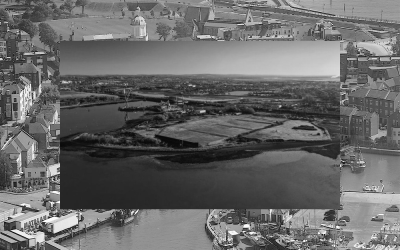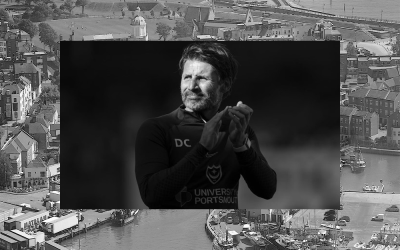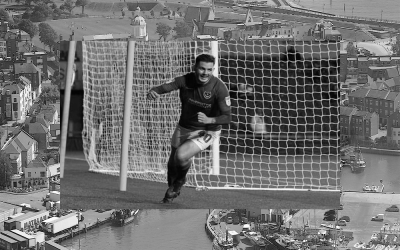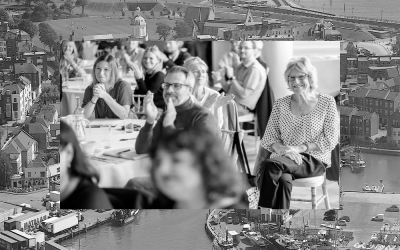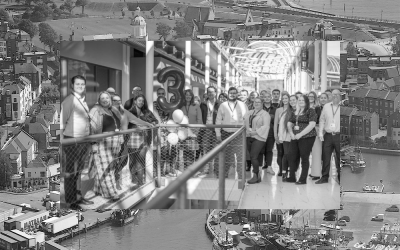Portsmouth Local News
Portsmouth’s Tipner development plans move step forward
A council has ruled a major growth that could include land being redeemed from the sea must still...
Portsmouth boss Danny Cowley reflects on Sky Sports pressures ahead of Charlton encounter
Danny Cowley has firmly insisted Pompey will certainly not really feel the stress of the Skies...
Portsmouth Sports News
One-time Portsmouth goal hero moves to Pagham in bid to reignite career which promised so much
It has actually been three years because he break onto the Pompey scene with a goal at Oxford...
Portsmouth Business News
Event celebrates the success of new Portsmouth businesses
Motivating entrepreneurs and leaders celebrated success. Learn how grant funding has actually...
Portsmouth broadband provider celebrates expansion, 3rd anniversary and its 10,000th customer
THE provider is expanding its fibre-optic network to Gosport as well as Lee-on-the-Solent as...
Why Should You Visit Portsmouth Local
Summary of Portsmouth Local
Portsmouth, city and unitary authority, geographic and historic county of Hampshire, England. It is a major naval base and, with Southsea, a popular holiday resort.
Portsmouth lies on Portsea Island, a narrow peninsula that separates two inlets of the English Channel: Portsmouth Harbour to the west and Langstone Harbour to the east. Portsmouth’s naval base and Royal Dockyard occupy the southwestern part of the peninsula, and Southsea lies on the peninsula’s southern tip. Portsmouth Harbour widens inward in bottle form, with Portsmouth on the east shore and Gosport on the west. The harbour opens out into Spithead, which is the eastern end of The Solent—the channel that separates the English mainland from the Isle of Wight offshore. Portsea Island’s excellent position commanding two of the finest anchorages along England’s southern coast helped make Portsmouth the country’s preeminent naval base for many centuries.
Portsmouth owes its origin to the retreat of the sea from the earlier settlement of Portchester at the head of Portsmouth Harbour. No town existed at the site until 1194, when the strategic importance of Portsea Island induced King Richard I to build a settlement there and to grant it a charter, fair, and market. The city is governed by a royal charter of 1627, modified by later municipal acts.
The dockyard, which is still a major source of employment, dates from 1496, when the town was already a naval base. It was greatly expanded after 1698 and now covers more than 300 acres (120 hectares), with numerous dry docks and fitting and repairing basins. In the 1860s four conspicuous masonry forts were built along the Spithead to defend the port and naval base. Portsmouth suffered severe aerial bomb damage during World War II, and substantial clearance and rebuilding took place in the postwar decades.
The tourist trade, which is centred primarily on Southsea, is of great importance to the city’s economy. Tourism is also important for the area’s ports, which are bases for sailing to France. The flagship of Lord Nelson at the Battle of Trafalgar (1805), HMS Victory, lies in the dockyard, as do the 19th-century HMS Warrior and the Mary Rose, the latter from Henry VIII’s navy; nearby is the Royal Navy Museum. The Guildhall, seriously damaged in World War II, reopened in 1959; it serves as civic headquarters, concert hall, and conference hall. Other notable buildings include a cathedral (12th century), Southsea Castle, and the birthplace of Charles Dickens. Shipbuilding and aircraft engineering are also important to the economy. Area 15 square miles (40 square km). Pop. (2001) 186,701; (2011) 205,056.
Points of Interest & Landmarks in Portsmouth
1. Portsmouth Historic Dockyard
2. Spinnaker Tower
3. Royal Armouries – Fort Nelson
4. HMS Warrior 1860
5. Old Portsmouth
6. Staunton Farm
7. Southsea Castle
8. Portsdown Hill
9. HMS M.33
10. Fratton Park

